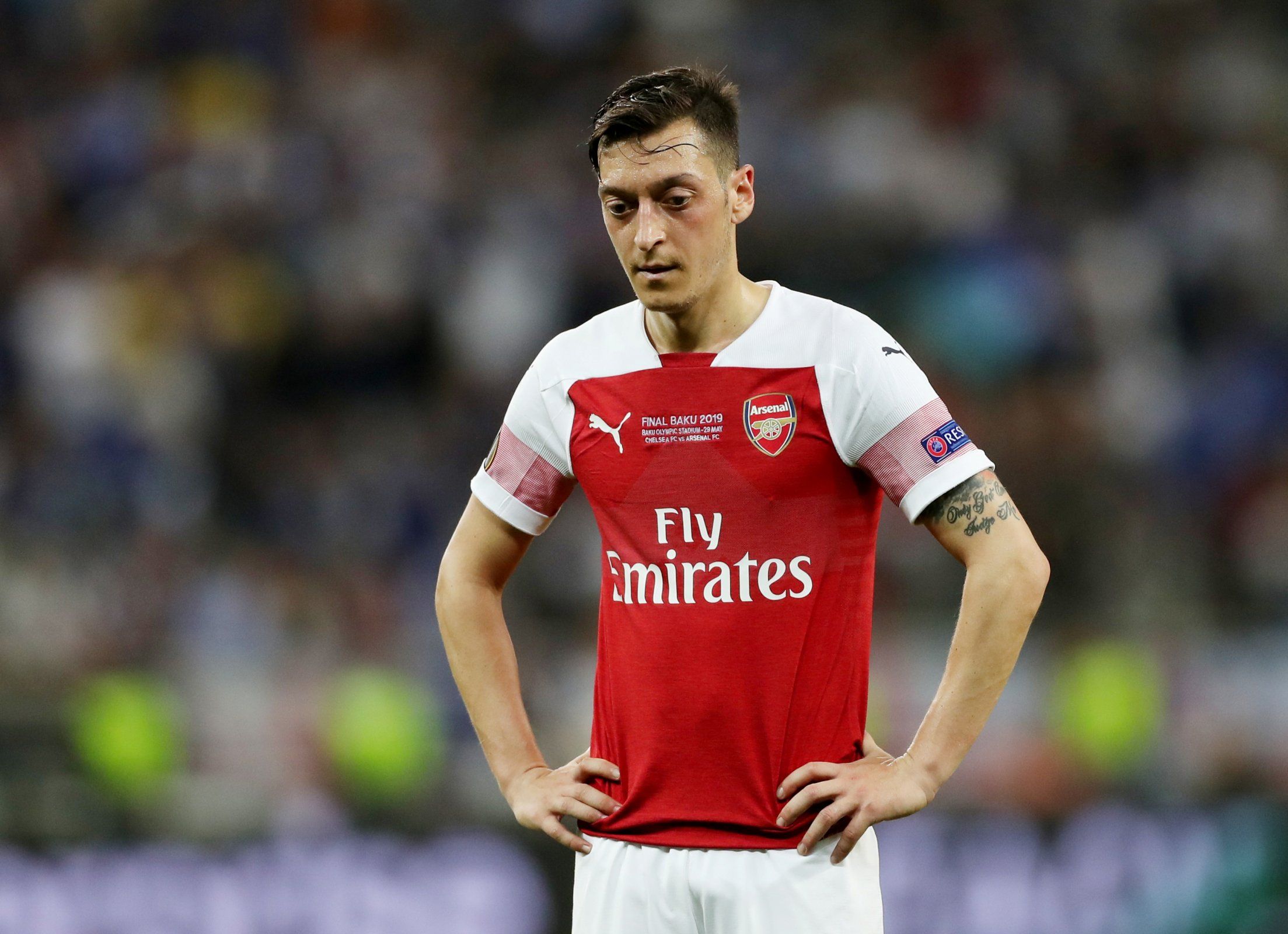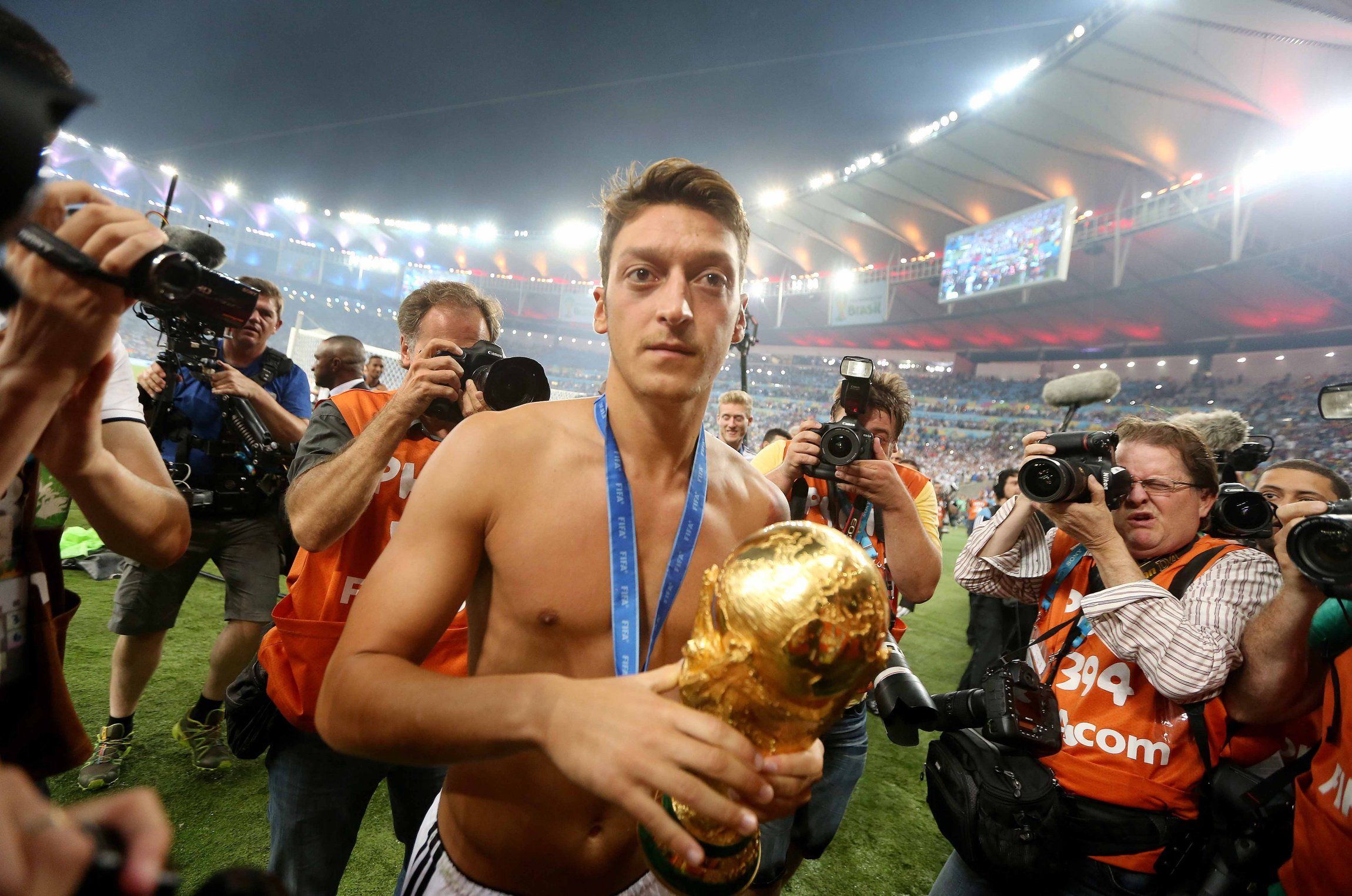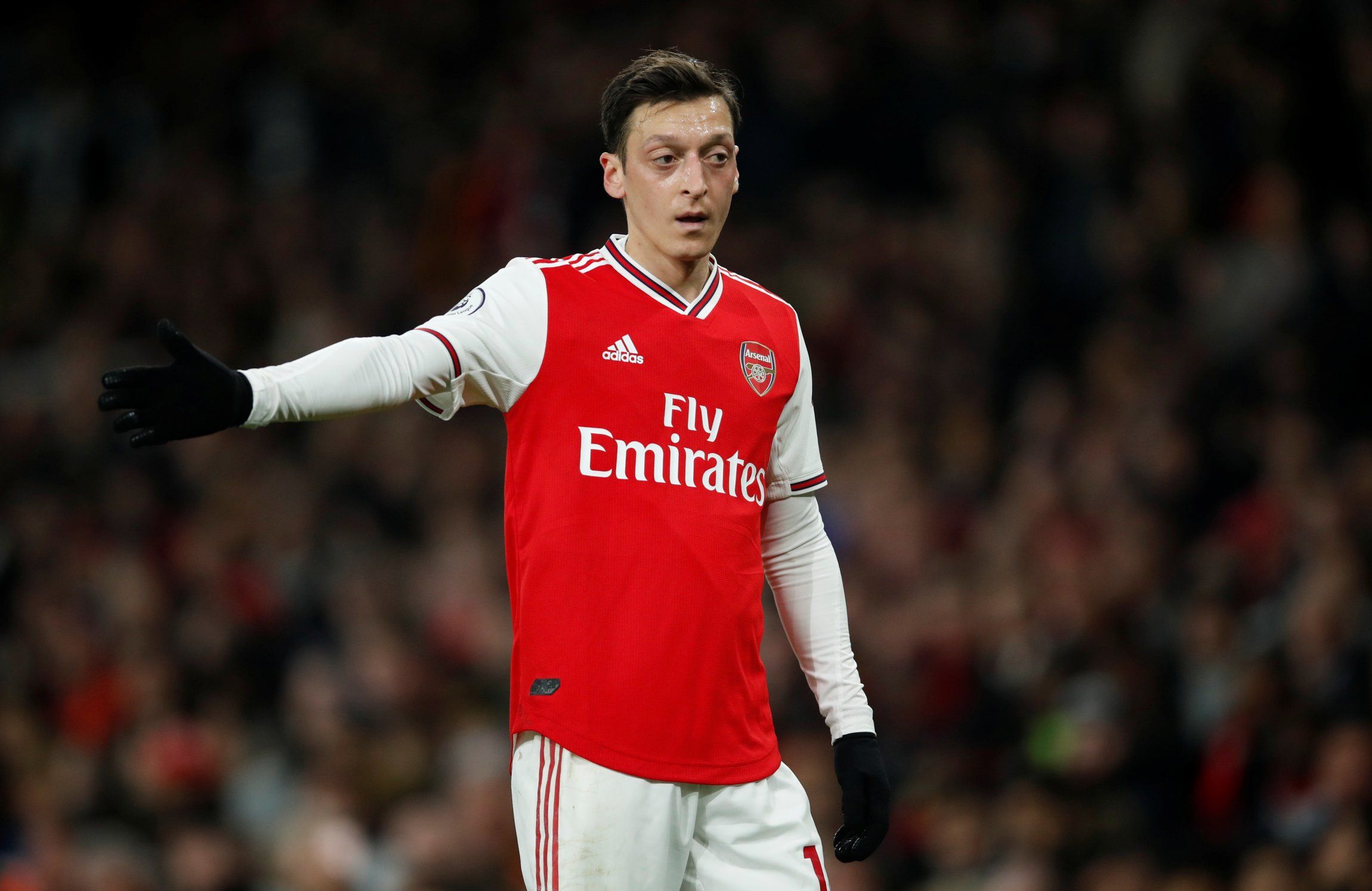In January 2018, Mesut Ozil signed a three-and-a-half-year contract extension with Arsenal worth a reported £350,000-a-week.
But two years into that contract, the now 31-years-old’s performance levels have dropped significantly, leaving him much maligned by the media. However, it’s his actions off the pitch that have also led him to be widely criticised. His philanthropic behaviour contrasted with problematic political relationships have seen an inconsistency in personality, which fascinatingly almost seems to mirror his fluctuating form on the pitch, leaving him as perhaps the game's most complex star.
In the 2015/16 season, Mesut Ozil managed 19 Premier League assists – just one short of the Thierry Henry’s record highest in a single campaign. Yet, in his first full season after signing the new contract in 2018, Ozil managed just two assists. Amy Lawrence laid bare the statistics in her article for The Athletic, writing: “Under Wenger, Ozil made an assist once every 241 minutes. Under Emery that plummeted to an assist every 1,041 minutes.”
However, prior to the new contract, Ozil’s decline had been evident for years. In the three seasons leading up to his contract signing his Premier League goal involvements (a goal or an assist) had dropped from 25 to 17 to 12.
“The midfielder's poor run of form and apparent insouciance is generating rumblings within the Arsenal set-up. With pressure mounting for him to be dropped, it's time Ozil proved a point,” wrote Miguel Delaney back in 2017.
We all know the German isn't the player he once was. We suspected that before he signed the new contract. So why did Arsenal offer him so much? Well, you have to remember Alexis Sanchez had just left for Manchester United. Arsenal couldn't afford to lose their next biggest star. And not just for sporting reasons.
In an article by SportsPro, they explain that a tweet from Juventus forward Cristiano Ronaldo, who has 83.8 million followers on the social media platform, carries a value of US$868,606. As of April 2020, Ozil has 21.8 million followers on Instagram and 24.8 million on Twitter. To put that in perspective, Arsenal currently have 15.7 million on Twitter and 17.4 million on Instagram. Ozil is his own brand, making him a very valuable asset to have.
So that partly explains why the German is so well paid. Naturally, his salary leads to higher expectations, which leads to more criticism on the field. But what about Ozil off the pitch?
Ozil is a practicing Muslim. During a Europa League match in 2018 against Atlético Madrid, an Atlético fan threw some bread at Ozil. He picked it up, kissed it, and brought it to his forehead to express gratitude towards the food given to him, which is important in Islam. His gesture was applauded throughout the stadium and then later in the media.
Isolation Busters: The only quiz you need to cure your boredom
World Class score: 95% | Expert score: 80% | Veteran score: 65% | Intermediate score: 45% | Amateur score: 30% | Try Again: 5%
On top of his devout faith, he is also a well-known philanthropist. The German donated his 2014 World Cup winnings, an estimated £237,000, to pay for 23 sick Brazilian children to have medical surgery as a personal thank you for the hospitality of the people of Brazil. And then, when got married, he announced on his social media platforms that he and his wife would "bear the expenses for surgeries of 1000 children in need."
So, we have Ozil as the World Cup winner and the underperforming midfielder. We have him as a philanthropist and a proud Muslim. But we also have him as the divisive political figure.
In July 2018, six months after signing his contract, Ozil published a three-part letter on his social media pages which ended with his retirement from international football.
In the letter, Ozil writes: “I have two hearts, One German and one Turkish”.
The 31-year-old is well known in Germany for his proud Turkish roots. In 2010, he received the Bambi award for being a prime example of successful immigration integration within German society. In the letter, he references his Turkish heritage as a way of defending himself, having been widely criticised for taking a photograph with controversial Turkish president Recep Tayyip Erdogan.
Ozil writes: “For me, having a picture with president Erdogan wasn't about politics.” Obviously, that's not how the media saw it. It led to widespread scrutiny.
Many of Ozil's personal projects were hindered. Indeed, he was scheduled to return to his old school in Gelsenkirchen but the school, to protect their own PR, decided to cancel the event as they “feared the media”. Ozil was also renounced by a series of other sponsors and companies.
Yet, in the letter, Ozil explains that Adidas were one of the few companies who remained “loyal” to him. Interestingly, Arsenal would announce a reported £300million kit deal with the same sponsor just few months later. That "loyalty" was there for a reason.
Then we have the incident with the armed muggers. In July 2019, two armed men tried to rob Ozil and Arsenal teammate Sead Kolasinac. We've all seen the video. One of the men is now doing 10 years in prison. It must have been terrifying.
In December of the same year, Ozil took to social media to tweet a poem denouncing the treatment of Uyghurs in China. China's state broadcaster China Central Television responded two days later by removing the match between Arsenal and Manchester City from its schedule. The German was also removed from China's version of the Pro Evolution Soccer 2020.
Whether it be Graeme Souness scalding him for poor attitude, or the Chinese government deleting him from video games, it seems the German is hardly ever more than a moment away from finding himself wrapped up in some new controversy.
If Ozil is not modern football's most complex star, then who is?




